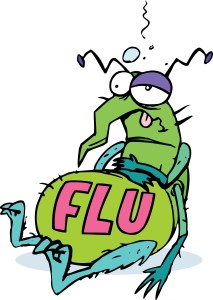Questions about the Flu, How to Treat and Prevent it.
The Flu is a serious contagious disease that can lead to hospitalization and even death. If you have ever had the Flu (influenza) it can be one of the toughest fights your body must combat against. Most people that get the Flu and experience its effects tend to get the Flu vaccine to prevent this sickness again.
Who is at risk for the Flu?
At risk are younger children, pregnant women, people with health conditions like asthma.
People with diabetes or heart and lung disease and people 65 years and older. Also children that
are too young to be vaccinated are at risk.
Here are ways to prevent the Flu.
- First get a flu shot, it will slash your chances of getting sick.
- Then wash your hands often and keep them away from your eyes, nose and mouth.
- avoid close contact with sick people.
- While sick, limit contact with others as much as possible to keep from infecting them.
- If you are sick with flu-like illness, CDC recommends that you stay home for at least 24 hours
Here is how to treat the Flu:
1. According to the CDC recommends a yearly flu vaccine as the first and most important step in protecting against flu viruses
2. Antiviral drugs are effective way to treat the Flu. Antiviral drugs are different from antibiotics, they are prescription medicines and are not available over-the-counter.
Antiviral drugs can make illness milder and shorten the time you are sick.
What are the symptoms of the flu?
With the flu each person can experience symptoms differently. Some people can be affected with several, or all, of the following symptoms:
- High fever
- Headache
- Runny or stuffy nose
- Sneezing at times
- Cough, often becoming severe
- Severe aches and pains
- Fatigue for several weeks
- Sometimes a sore throat
- Extreme exhaustion
Visit the CDC for more information on the most common types, vaccines, and treatments for the flu.
This is for advice only, please consult your Doctor for more information.


